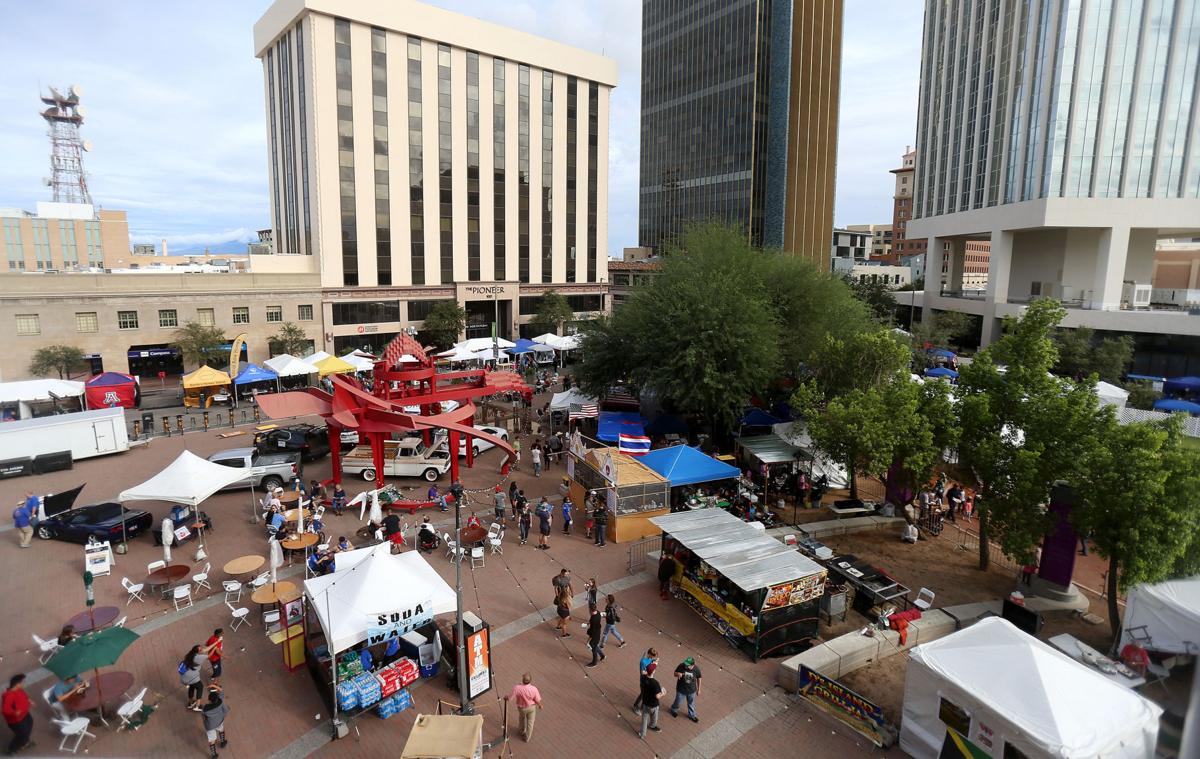The group that brings Tucson’s diverse community together each fall continues to gain support from the National Endowment for the Arts Coronavirus Aid, Relief and Economic Security program.
The Southwest Folklife Alliance last week received $6,811 from the Phoenix-based nonprofit Arizona Humanities, which supports public programs “that promote understanding of the human experience.” The grant, one of 58 Arizona Humanities awarded statewide, was funded with $520,000 in NEA CARES Act program monies.
That brings Southwest Folklife Alliance’s total CARES funding to more than $76,000; the group received $50,000 in CARES money from the NEA and $20,000 from the Western States Arts Federation’s CARES grants.
The alliance puts on the annual Tucson Meet Yourself folklife festival each October, bringing together dozens of cultural groups to showcase their art and food downtown.
The three-day event attracts hundreds of thousands of people to downtown, where main streets around Jacome Plaza are closed to traffic as vendors set up tents and booths. Musical and dance performances are held at stages throughout the downtown area.
The newest CARES funds will support Southwest Folklife Alliance’s general operating budget including its online publication, BorderLore. Part of those monies will pay the salary of BorderLore’s part-time managing editor Kimi Eisele.
BorderLore transitioned from a monthly publication to weekly last April, as the coronavirus pandemic was picking up steam, to address COVID-19-related issues. Stories have included its series “Folkife in a Time of Pandemic” that highlights how culture and heritage practices are shifting because of the virus and personal narratives from front-line essential workers. Leia Maahs, the alliance’s managing director, said the CARES funds will help keep the alliance operating including paying its local contractors and traditional artists.
“CARES act grants have provided essential funding to our organization in times of uncertainty,” she said, adding that the nonprofit sector has been hit especially hard by the COVID-19 pandemic. “We have experienced over $150,000 in economic loss so far.”
Meet Yourself organizers are exploring ways to bring the 2020 festival, scheduled for Oct. 9-11, to life on a smaller scale that could include a virtual element and hosting small groups at multiple locations throughout Pima County. No decisions have been made, Maahs said, but Eisele, who also is an alliance spokeswoman, said the event “is not going to be the festival that we know and love.”
“We are hoping to keep the spirit of connecting Tucson to its many cultures and folklife traditions, to keep that connection going whether that’s through Zoom and food pickup and whatever other creative ways we can reimagine that,” she said.
A look back
The first annual Tucson Meet Yourself welcomed 1,000 people to El Presidio Park in 1974. Now more than 120,000 people head downtown for the event.





